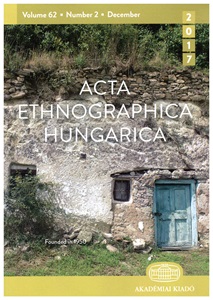Collective Vertigo - Roger Caillois’ “Théorie de la Fête” Toward Contemporary Music Festivals in Poland and Hungary
Collective Vertigo - Roger Caillois’ “Théorie de la Fête” Toward Contemporary Music Festivals in Poland and Hungary
Author(s): Waldemar KuligowskiSubject(s): Music, Cultural Anthropology / Ethnology, Tourism, Sociology of Art
Published by: Akadémiai Kiadó
Keywords: festival; Roger Caillois; music; festivalization; Hungary; Poland; audience;
Summary/Abstract: This paper is an attempt to apply Roger Caillois’ “théorie de la fête” to the contemporary music festivals in Poland and Hungary. The French ethnologist suggested that modernity does not provide the opportunity for collective vertigo, marginalizes the festival, and transforms it into a possibility that is difficult to achieve. According to the results of my ethnographic fieldwork, the festival is a place of rest, fun, elation, rewarding belonging to a community, or even freedom at different levels. For many participants, it is a holiday in its purest form; a festival whose subject is music, but whose purpose is mental rest. In this context, the concept of festivalization should be redefined. In the analyzed cases (Jarocin Festival, OFF Festival, and O.Z.O.R.A. Festival), festivalization is not reduced to specific, collective forms of consumption; it also means the possibility of creating specific space-times of rest and freedom.
Journal: Acta Ethnographica Hungarica
- Issue Year: 62/2017
- Issue No: 2
- Page Range: 389-406
- Page Count: 18
- Language: English
- Content File-PDF

